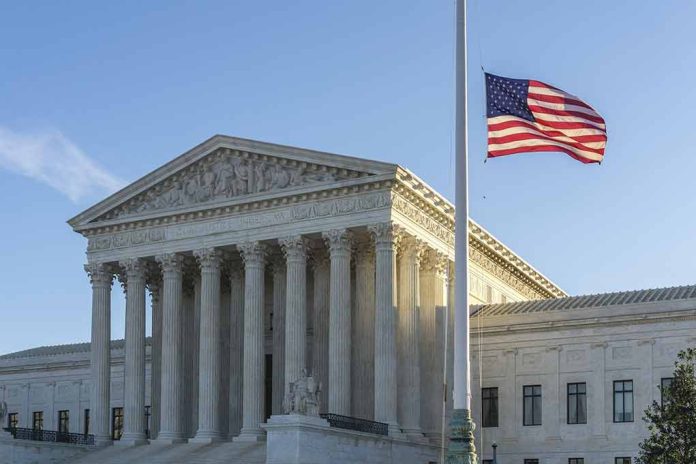
The Supreme Court sides with the FDA on flavored vape restrictions targeting teen nicotine addiction, but future enforcement under the Trump administration remains uncertain.
Key Takeaways
- The Supreme Court unanimously upheld the FDA’s authority to regulate sweet-flavored vaping products, overturning a lower court ruling that had favored manufacturers.
- Justice Samuel Alito acknowledged the appeal of flavored vapes to middle and high school students, supporting the FDA’s public health concerns.
- Despite the ruling, the case returns to the Fifth Circuit Court of Appeals for further review, and enforcement policies could shift under President Trump’s administration.
- The FDA has rejected over one million flavored nicotine product applications while approving some tobacco and menthol options for adult smokers.
Supreme Court Delivers Unanimous Decision on Vape Regulations
In a significant development for public health policy, the Supreme Court has unanimously ruled in favor of the Food and Drug Administration’s authority to regulate sweet-flavored vaping products. The decision, written by Justice Samuel A. Alito Jr., overturns a previous ruling by the U.S. Court of Appeals for the Fifth Circuit that had found the FDA acted unlawfully when rejecting applications from e-cigarette manufacturers. This ruling temporarily maintains the FDA’s prohibition on marketing flavored tobacco products that have become increasingly popular among teenagers.
Breaking news: The Supreme Court ruled unanimously that the Food and Drug Administration properly rejected applications to market fruit- and dessert-flavored liquids for e-cigarettes that the agency says are popular with young people who risk getting hooked on nicotine.…
— The Washington Post (@washingtonpost) April 2, 2025
The Supreme Court specifically addressed the case of Triton Distribution, whose application to sell certain flavored e-juices was denied during the Biden administration. Justice Alito noted in the court’s opinion that the FDA’s denials were largely consistent with agency guidance on tobacco regulations, rejecting the appeals court’s assertion that the agency had acted “arbitrarily and capriciously” in its decision-making process. The court recognized the particular appeal of fruit and candy-flavored vaping products to middle and high school students.
Public Health Implications and Industry Response
The ruling represents a significant victory for public health advocates who have long expressed concern about youth nicotine addiction. The FDA has taken a hard line on flavored vaping products, rejecting over one million applications for such products on the grounds that manufacturers failed to demonstrate a net public health benefit. The agency has, however, approved some tobacco-flavored and menthol-flavored vapes that it determined could help adult smokers transition away from traditional cigarettes.
Reactions to the Supreme Court decision have been divided along expected lines. Erika Sward from the American Lung Association praised the ruling, emphasizing the critical role that flavors play in attracting young users to vaping products. In contrast, Tony Abboud, representing the Vapor Technology Association, expressed disappointment with the decision, reflecting the industry’s continued opposition to what it views as excessive regulation that could limit adult access to reduced-harm alternatives to cigarettes.
Uncertain Future for Vaping Regulations
Despite the Supreme Court’s ruling, the future of vaping regulation remains uncertain. The case has been sent back to the Fifth Circuit for further review, with the Supreme Court noting that the FDA’s failure to consider Triton’s marketing plan could still influence the final outcome. Additionally, regulatory approaches could shift significantly under President Donald Trump’s administration, potentially leading to a more industry-friendly stance on vaping products.
Recent developments at the FDA have added to this uncertainty. Brian King, the agency’s top tobacco regulator, was recently removed amid federal health workforce reductions. This leadership change, combined with potential policy shifts under the incoming administration, suggests that while the Supreme Court has affirmed the FDA’s regulatory authority, the practical implementation of vaping product oversight remains in flux as the government balances concerns about youth nicotine addiction with industry interests and adult consumer choices.
Sources:
Supreme Court sides with the FDA in its dispute over sweet-flavored vaping products
Supreme Court sides against makers of flavored vapes that are popular with teenagers
Supreme Court Rules Against Makers of Flavored Vapes Popular With Teens







